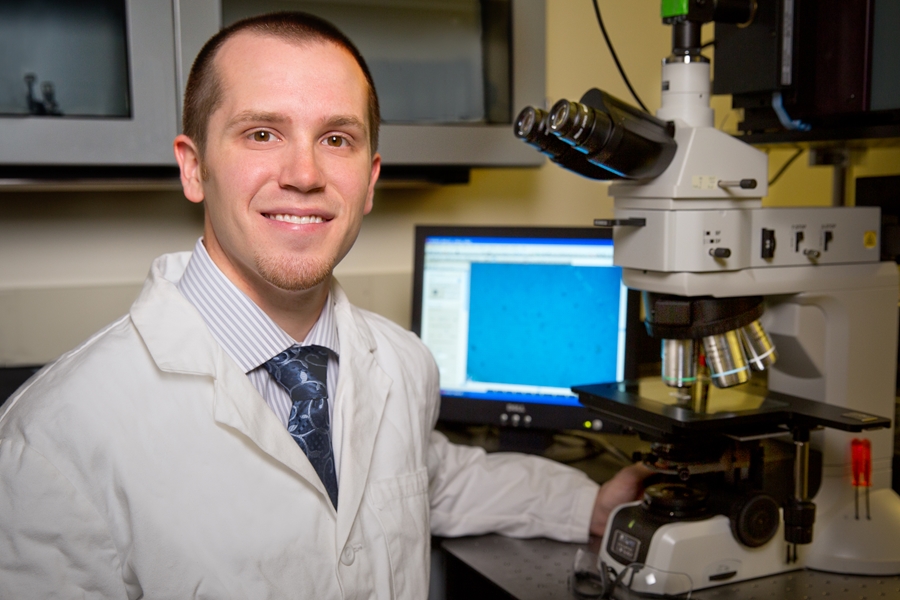
The term "alternative energy" typically brings to mind images of solar panels, wind turbines or hybrid cars. But, how many of us think of the heat energy generated from our computers or our bodies?
Gregory Forcherio, a doctoral student in microelectronics-photonics, has been thinking about exactly that.
"Approximately 60 percent of the world's energy is wasted heat dissipated into the air," he said. "I am working to develop brand new materials that take wasted heat energy and translate it into something we can actually use."
Though recycled heat energy could potentially be used in a variety of different ways, Forcherio is most interested in using the energy for personal power networks, such as wearable electronics.
Converting heat into energy for this purpose is not a new idea. The past few decades have seen products powered by recycled heat debut in the marketplace. However, according to Forcherio, the materials used to make these products are too expensive and not adequately efficient. The Doctoral Academy Fellow aims to create a completely different mechanism to achieve the same end goal.
Instead of merely improving on the current technology, Forcherio hopes to create an entirely new method to fuel personal power networks.
"The big leaps [in portable power generation] are really 20 or 30 years down the road, in terms of replacing what we have now with something totally better," he said. "We can only go so far in improving what we have now. Eventually, we have to start making something new."
Still in the preliminary stages of his research, Forcherio is working to harvest heat energy from metamaterials. Metamaterials are manmade materials that are engineered to exhibit properties not found in nature. They are also 10,000 times smaller than a strand of human hair. Forcherio manipulates the shape, size and elemental composition of the materials, controlling their energy transfer properties and how they interact with light.
One of the most telling findings Forcherio has observed is the color change that occurs in the metamaterials when they are functioning properly.
"The color tells me how the material is interacting with light, which is important because dissipated heat is just light at a different wavelength," he said.
Many of the measurements he needs for his study require the use of specialized laser microscopy equipment found in few labs across the globe. Fortunately, Forcherio is collaborating with a research team in Switzerland who has access to the equipment at the University of Geneva. He plans to visit the Swiss lab multiple times throughout the year to gather the needed data.
Forcherio's research is funded by a National Science Foundation Graduate Research Fellowship. Though he anticipates completing his degree in the spring 2017 semester, he hopes to continue his research post-graduation.
Topics
Contacts
Amanda Cantu, director of communications
Graduate School and International Education
479-575-5809, amandcan@uark.edu